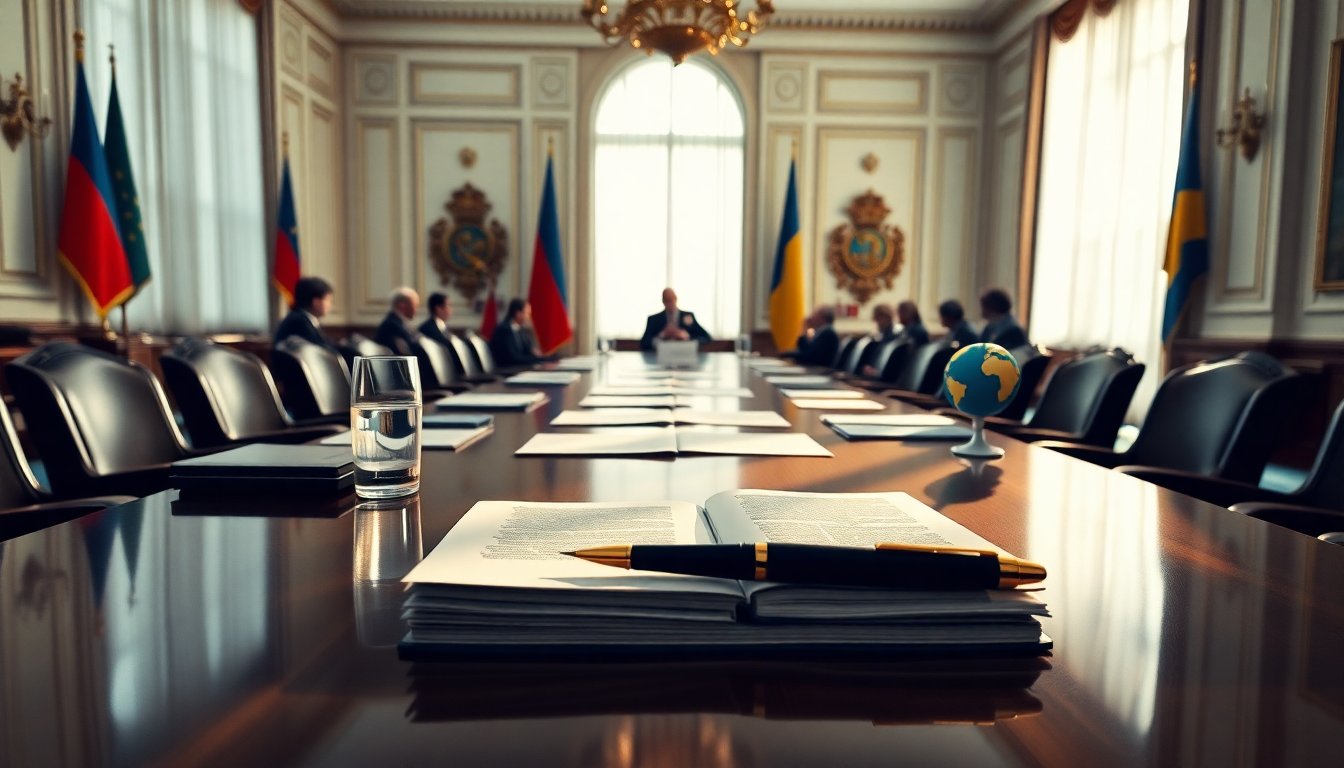Table of Contents
During a recent address in Bishkek, President Vladimir Putin discussed the potential peace framework proposed by the Trump administration concerning the ongoing conflict with Ukraine. He acknowledged that these suggestions could serve as a basis for future negotiations. However, he asserted that any agreement with Ukraine’s current leadership remains fundamentally unattainable from Russia’s perspective. His comments highlight the continuing complexities of international diplomacy in the region.
Putin emphasized that the lack of a formal agreement does not impede dialogue. He noted that discussions with American negotiators occurred prior to his visit to Alaska, during which a list of issues was presented. This list, consisting of twenty-eight points, was later categorized into four main components by the American and Ukrainian delegations during meetings in Geneva.
The insistence on territorial control
One critical point raised by Putin concerns the expectation for Ukrainian forces to withdraw from contested territories. He stated, “If they don’t, we will achieve this by military means.” This stark warning underscores Russia’s readiness to escalate military action should Ukraine refuse to comply with the terms set by Moscow. Putin emphasized the importance of having these decisions recognized by major international players, as such acknowledgment would affirm Russian sovereignty over certain territories.
Implications of recognition
Putin asserted that international recognition is essential. He explained that if Russia’s territorial claims are acknowledged, any violations of agreements would be regarded as an attack on the Russian Federation, justifying a strong response. Conversely, if these actions are perceived as attempts to restore Ukrainian governance, the situation would be evaluated differently. This distinction is crucial in negotiations with the U.S.
Putin rejected claims from various groups suggesting that Russia is poised for an invasion of Europe. He characterized such assertions as nonsensical and unfounded, arguing that they mislead the public. He expressed a willingness to document Russia’s non-aggressive intent towards Europe, provided there is a genuine interest in dialogue.
Challenges in U.S.-Russia relations
Despite ongoing complexities, Putin suggested that establishing a collaborative relationship with the U.S. depends on the implementation of proposals outlined in the U.S. peace framework. He pointed out that recent sanctions imposed by the United States on Russian oil companies have added difficulties to maintaining positive relations, especially since they were announced unexpectedly after discussions seemed to be progressing.
Political dynamics in Ukraine
Putin’s remarks also addressed the political situation in Ukraine, where he criticized the leadership for failing to hold elections after losing legitimacy. He compared this to Russia’s own electoral processes, noting that elections were conducted even amidst conflict. This contrast strengthens his argument regarding the impracticality of signing agreements with the current Ukrainian administration.
Ultimately, Putin remains committed to achieving a resolution with Ukraine, although he insists that such an agreement is currently “legally impossible.” His statements indicate a willingness to continue negotiations with the U.S. while preparing for potential military actions should Ukraine refuse to adhere to Russia’s proposed terms.
The broader implications for international relations
The ongoing situation has significant ramifications not only for Ukraine but also for the broader global financial system. Putin warned that declining trust in the Eurozone could lead to severe consequences, directing the Russian government to prepare retaliatory measures if necessary. This acknowledgment of potential economic fallout illustrates the interconnected nature of international relations and the delicate balance of power at play.
Putin’s recent comments encapsulate the intricate dynamics of the conflict in Ukraine, the challenges of U.S.-Russia relations, and the potential for ongoing military engagement. His insistence on territorial demands and the pursuit of international recognition remain central themes as negotiations evolve in this complex geopolitical landscape.


